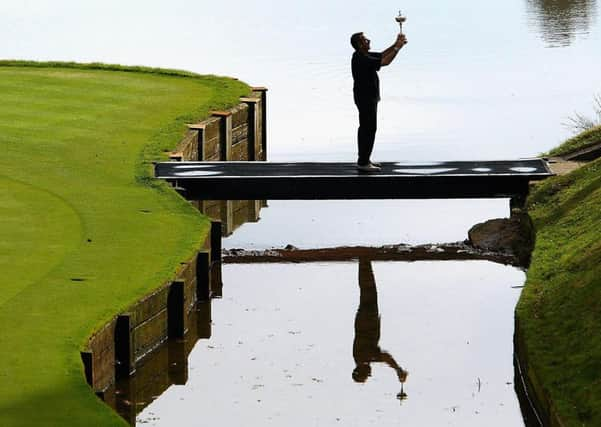Great memories - but Sam Torrance regrets missing out on a major


Torrance chalked up a total of 44 title triumphs in the professional ranks, including 21 European Tour victories, but his best effort in a major was finishing fifth behind American Bill Rogers in the 1981 Open Championship at Royal St George’s.
“It hurts that I never gave them (the galleries) what they wanted from me, a major,” admitted the 66-year-old, who made a record 706 appearances on the European circuit after making his debut in the Spanish Open in 1972. “But it was great. I always had huge respect from the fans, not just in Scotland but all over the place. It was a love and it was lovely.”
Advertisement
Hide AdAdvertisement
Hide AdWhile he wouldn’t mind turning back the clock and trying to take on the new wave of fit, strong and disciplined professionals, there is little Torrance would want to do differently. And no wonder when you consider we are talking about a Ryder Cup legend who also landed a title triumph on the hallowed ground of the Old Course at St Andrews with his son, Daniel, alongside him.
“In the end, all I have is memories and I have got some crackers that will never leave me, ever,” he said. “My overriding memory is being captain of the 2002 Ryder Cup team and also winning the team event in the Alfred Dunhill Links with Daniel in 2003 is also right up there.
“Would I like to come back now as a youngster? It’s difficult to assess. I can’t comprehend 180 yards with an 8-iron. That was a 4-iron with a boost. And when I look at the clubs, they are not stronger. It’s them (the players), they are stronger. The clubs are more finely-tuned and the sweet spots are bigger and it’s easier to hit out of the middle of the club.
“But the distances they hit the ball now is extraordinary. A 430-yard par-4 in my day was two woods. So I don’t know. I love my life so much now. I would love to do it again, but I wouldn’t like to replace what I did and where I was.
“When I was young, I never thought about having any other career than that of a golf professional. I remember being at Rossendale (the Lancashire club where his dad and lifelong coach, Bob, was professional and head greenkeeper for a spell before returning to Largs) between the ages of five and nine and standing on the range with the club in the perfect position at the top and hitting the ball from there.
“I thought, ‘what’s the point of taking it there when you can put it there?’ That’s still as clear in my mind as night and day. Then when I really started at Largs age nine or ten, I played three rounds a day. It was all I wanted to do virtually from the moment I could breathe.”
He is content now, though, to do some commentating as a member of the European Tour Productions team that deliver the World Feed around the globe. “Absolutely!” he declared in reply to being asked if that role is now his future in the game. “I won’t be doing anything else other than company days and stuff like that. I love commentating and if you had said to me 20 years ago I will go to the Open but not to golf, I would have said, ‘don’t be ridiculous. Why would I want to be going to the Open if I’m not playing?’
“I now love actually being there and how good they are now and seeing the differences in the competition now, and also being able to talk about it and give something back to the game. So, I really do enjoy the commentary work.”
Advertisement
Hide AdAdvertisement
Hide AdHas that made his decision to retire easier? “No, and if anything it might have made it harder,” he confessed. “It definitely made it harder in the beginning, but then it’s not like that now as I have been commentating for a long time.
“The thing that does get me when I’m commentating – it is like it’s me hitting the bloody shot and the negativity sometimes comes into my commentating and I will make comments while I am on air like I am playing the shot. But then these kids now out on the tour, there is no nerves at all.”